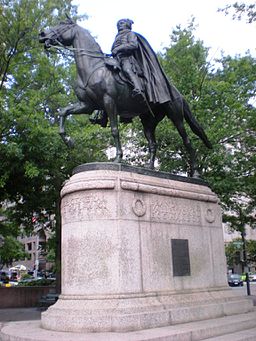
Casimir Pulaski, a Polish military leader, is considered “the father of the American cavalry.” Serving in the Continental Army during the Revolutionary War, he is credited with saving the life of General George Washington.
Early Life
Casimir Pulaski, son of Count Joseph Pulaski, was born in Warsaw, Poland, on March 6, 1745. At the age of 15, he joined his father and other members of the Polish nobility in the Confederation of Bar, which fought against Russian and Prussian encroachment into Polish affairs. He rose to become one of the Confederates’ most accomplished military leaders. However, the Confederates were defeated in the spring of 1772, and Pulaski was forced into exile.
In 1776, Pulaski met Benjamin Franklin in France. Franklin encouraged him to fight alongside the colonists. In a letter to George Washington, Franklin described Pulaski as “an officer renowned throughout Europe for the courage and bravery he displayed in defense of his country’s freedom.”
Revolutionary War
Pulaski came to America in 1777 to join the Continental Arm. He quickly distinguished himself at the Battle of Brandywine, helping the Americans avoid a costly defeat and saving the life of General Washington. Pulaski was subsequently made a brigadier general in the Continental Army cavalry.
During the winter at Valley Force, Pulaski dedicated his efforts to reorganizing the cavalry force. In 1778, he was officially tasked with forming cavalry corps of 68 lancers and 200 light infantry. He became known as the “Father of the American Cavalry.”
The Pulaski Legion was well-trained, and Pulaski often used his own funds to ensure they were all well-equipped. After defending Little Egg Harbor in New Jersey and Minisink on the Delaware, the Legion was sent to the Southern Front.
Death
Pulaski was gravely wounded at the Battle of Savannah on October 9, 1779. He died aboard the South Carolina merchant brig privateer Wasp, although the details of his burial are unclear. Pulaski’s alleged remains were exhumed in 1996. Forensic analysis confirmed his identity and revealed that he may have been intersex.







